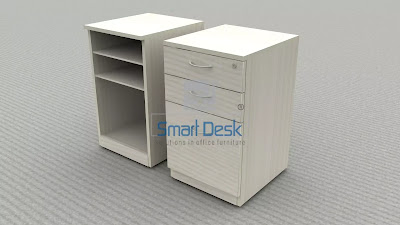How Ergonomic Office Furniture Can Help Foster a Healthier Workplace Environment
In today’s fast-paced work environment, the importance of a healthy workplace cannot be overstated. One of the key factors contributing to a healthier work environment is the use of ergonomic office furniture. This type of furniture is designed with the human body in mind, ensuring comfort, efficiency, and overall well-being. In this blog post, we'll explore how ergonomic office furniture can help foster a healthier workplace environment.
Reducing Physical Strain: Ergonomic furniture reduces physical strain by promoting proper posture and movement. For example, ergonomic chairs offer lumbar support, adjustable seat height, and armrests, all of which help maintain a healthy sitting posture. This reduces the risk of developing chronic pain and injuries, leading to a healthier workforce.
Enhancing Productivity and Efficiency: When employees are comfortable, they can focus better on their tasks. Ergonomic furniture helps to eliminate distractions caused by discomfort, such as the need to constantly adjust seating positions or take frequent breaks due to pain. With adjustable desks, chairs, and monitors, employees can customize their workspace to suit their individual needs, leading to increased productivity and efficiency. A comfortable and supportive work environment allows employees to perform at their best, contributing to the overall success of the organization.
Boosting Mental Well-being: Physical comfort has a direct impact on mental well-being. When employees experience less physical discomfort, they are likely to feel more satisfied and less stressed. Ergonomic office furniture contributes to a positive work environment by reducing the physical stress that can lead to mental fatigue and burnout. A workplace that prioritizes employee comfort is seen as more supportive and caring, which can boost morale, reduce turnover, and foster a positive workplace culture.
Promoting Employee Health: Ergonomic furniture not only reduces the risk of injury but also encourages healthy habits. For instance, sit-stand desks allow employees to alternate between sitting and standing throughout the day, promoting better circulation, reducing the risk of obesity, and lowering the likelihood of developing cardiovascular problems. Ergonomic accessories, such as keyboard trays and monitor stands, help prevent strain on the wrists, neck, and eyes, further supporting overall health. By investing in ergonomic furniture, companies can promote long-term health benefits for their employees.
Supporting Inclusivity and Accessibility: A one-size-fits-all approach to office furniture can alienate employees with different physical needs and abilities. Ergonomic furniture is designed to be adjustable and adaptable, accommodating a wide range of body types and physical conditions. This inclusivity helps create a more accessible workplace where all employees feel valued and supported. By providing furniture that can be tailored to individual needs, employers demonstrate a commitment to diversity and inclusion, fostering a sense of belonging among the workforce.
Reducing Workplace Injuries and Absenteeism: Workplace injuries are a significant concern for employers, leading to lost productivity and increased healthcare costs. Ergonomic furniture can play a crucial role in reducing the incidence of workplace injuries by promoting safe and healthy working practices. Employees who use ergonomic furniture are less likely to suffer from work-related injuries, which in turn can reduce absenteeism and the need for costly medical interventions. This not only benefits the employees but also has a positive impact on the company’s bottom line.
Conclusion
Investing in ergonomic office furniture is more than just a trend; it's a strategic move toward creating a healthier and more productive workplace environment. By reducing physical strain, enhancing productivity, boosting mental well-being, promoting health, supporting inclusivity, and reducing injuries, ergonomic furniture can make a significant difference in the overall well-being of employees. Companies that prioritize ergonomics are likely to see a happier, healthier, and more engaged workforce, leading to long-term success.
Learn more about ergonomic in office furniture: https://bit.ly/3X41s6T



.png)
Ergonomic office furniture can significantly improve productivity, and the right accessories, like a stylish wooden wireless charger, can elevate the workspace even further. A sleek wireless charger from KerfCase adds a touch of modern fashion and functionality to any desk setup. Not only does it keep devices charged without clutter, but it also complements the clean and organized ergonomic furniture.
ReplyDelete